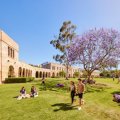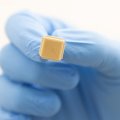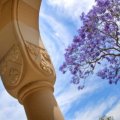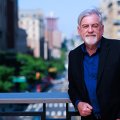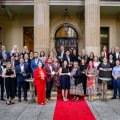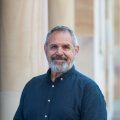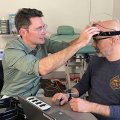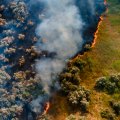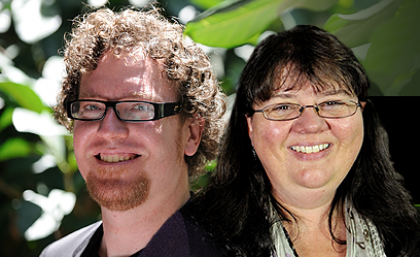
A creative chemistry educator and a peace and conflict lecturer from The University of Queensland are among the nation’s most outstanding university teachers for 2013.
At the 2013 Australian Awards for University Teaching on Tuesday night, Dr Gwen Lawrie and Dr Sebastian Kaempf both won prestigious Awards for Teaching Excellence.
The awards are designed to recognise quality teaching practice and outstanding contributions to student learning, and were announced by the Parliamentary Secretary for the Minister for Education, Senator Scott Ryan, at the National Portrait Gallery in Canberra.
UQ Deputy Vice-Chancellor (Academic) Professor Joanne Wright said the awards highlighted the teaching excellence and outstanding mentorship that led to well-rounded graduates.
“UQ attracts teachers who add value their teaching, who enrich the learning experience for students and help develop communication and teamwork skills, which are incredibly valuable in the workplace,” Professor Wright said.
“Such excellence in teaching and devotion to the student experience, which is reflected in Dr Lawrie and Dr Kaempf’s awards, is part of what we mean by the ‘UQ Advantage’, which can impact the professional and personal lives of students long after graduation.
“Our wonderful teachers are intrinsic to UQ’s mission to provide knowledge leadership for a better world .”
Dr Gwen Lawrie is a first-year chemistry university teacher from the UQ School of Chemistry and Molecular Biosciences. Her primary focus has been to shift the model of first-year chemistry to create learning environments in which students in very large classes are respected as individual learners. See more in her biography below.
Dr Sebastian Kaempf from the School of Political Science and International Studies is a peace and conflict studies lecturer whose teaching reflects his empathy with, and genuine interest in, engaging and challenging students. See more in his biography below.
“Queensland would be a very different place if it were not for teachers like these inspiring generation after generation of graduates to make their mark on the wider world,” Professor Wright said.
The teachers honoured at the awards come from universities all around Australia and from disciplines as diverse as dental studies, business, construction, languages, medical science and architecture.
Media: Janelle Kirkland, UQ Communications, 07 3346 0561 or j.kirkland@uq.edu.au
2013 Australian Awards for University Teaching - UQ winners’ bios
Dr Gwen Lawrie
Dr Gwen Lawrie is a creative educator dedicated to delivering collaborative active learning environments as a strategy to improve the first-year learning experience in chemistry.
Her primary focus has been to shift the paradigm of first-year chemistry to create learning environments where students in very large classes are respected as individual learners.
Dr Lawrie encourages students to develop self-awareness of their thinking and learning processes through deep engagement and involvement in a wide range of activities designed to help them find ways to connect to chemistry through personal relevance. She has successfully implemented a range of assessment activities that have provided students with opportunities to demonstrate their deeper understanding of chemistry concepts.
Her informed and innovative approaches to teaching, learning and assessment have resulted in enhanced student engagement in chemistry addressing diversity in students’ academic ability, interest, prior experiences and career aspirations.
She is acknowledged and respected as an innovative practitioner and researcher by her peers both nationally and internationally through collaborations and invitations to participate in peer-reviewed forums.
Dr Sebastian Kaempf
Dr Sebastian Kaempf is Lecturer in Peace and Conflict Studies at the University of Queensland where he teaches the first year course Introduction to Peace and Conflict Studies, the second-year course International Peacekeeping, and the Masters course Contemporary Peacekeeping.
His students attest to his enthusiasm, approachability, commitment, and ability to motivate and interest. His teaching reflects his empathy with, and genuine interest in, engaging and challenging students.
He applies Universal Design principles to classroom teaching and curriculum design, offers multiple and diverse assessment items, and employs simulations, self-reflective and multi-perspective approaches as sources of learning.
He pioneered the use of online teaching in a course that includes students from UQ and 20 partner universities across the globe.
.jpg)
